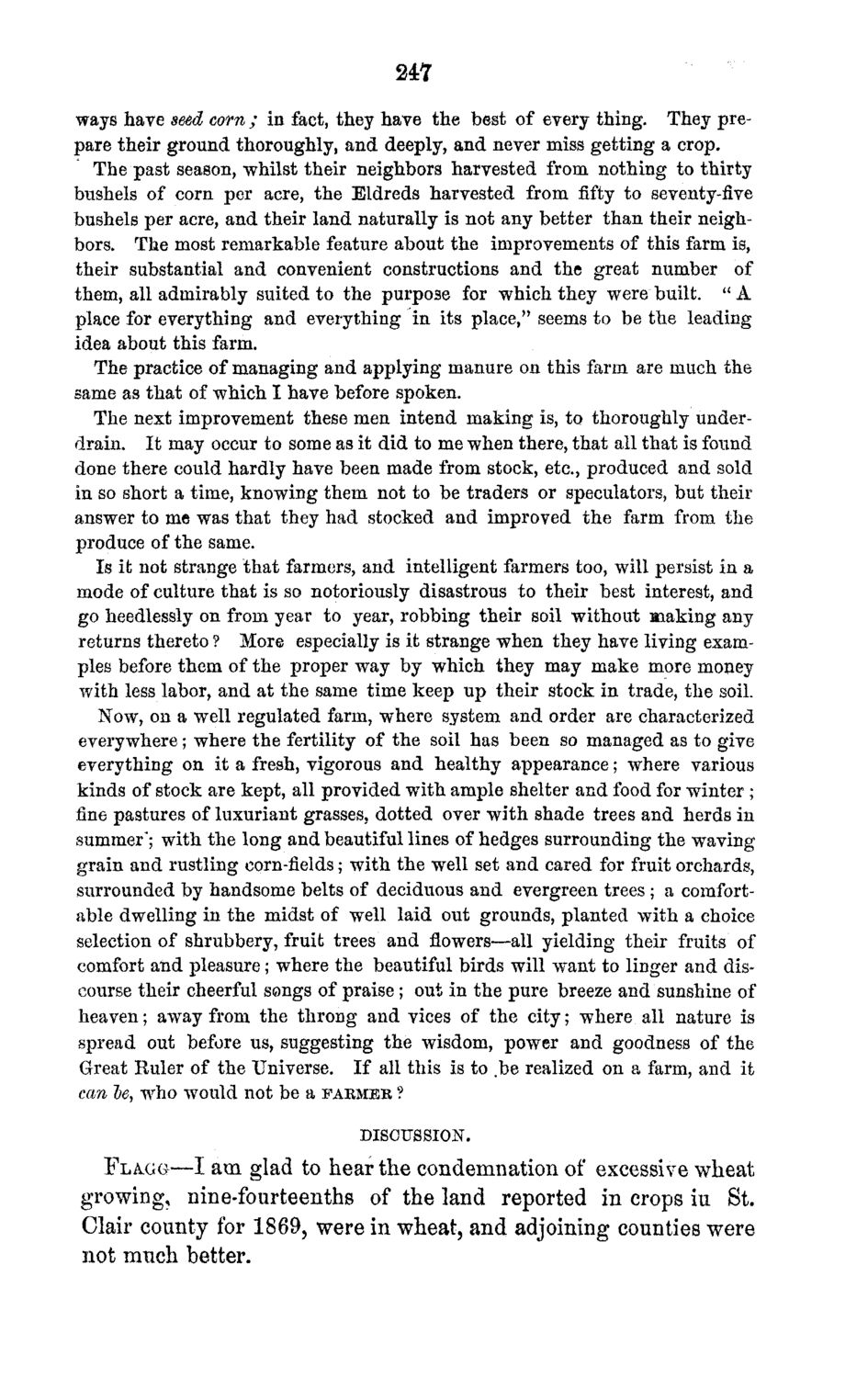| |
| |
Caption: Board of Trustees Minutes - 1870
This is a reduced-resolution page image for fast online browsing.

EXTRACTED TEXT FROM PAGE:
247 ways have seed corn ; in fact, they have the best of every thing. They prepare their ground thoroughly, and deeply, and never miss getting a crop. The past season, whilst their neighbors harvested from nothing to thirty bushels of corn per acre, the Eidreds harvested from fifty to seventy-five bushels per acre, and their land naturally is not any better than their neighbors. The most remarkable feature about the improvements of this farm is, their substantial and convenient constructions and the great number of them, all admirably suited to the purpose for which they were built. " A place for everything and everything in its place," seems to be the leading idea about this farm. The practice of managing and applying manure on this farm are much the same as that of which I have before spoken. The next improvement these men intend making is, to thoroughly underdrain. It may occur to some as it did to me when there, that all that is found done there could hardly have been made from stock, etc., produced and sold in so short a time, knowing them not to be traders or speculators, but their answer to me was that they had stocked and improved the farm from the produce of the same. Is it not strange that farmers, and intelligent farmers too, will persist in a mode of culture that is so notoriously disastrous to their best interest, and go heedlessly on from year to year, robbing their soil without making any returns thereto ? More especially is it strange when they have living examples before them of the proper way by which they may make more money with less labor, and at the same time keep up their stock in trade, the soil. How, on a well regulated farm, where system and order are characterized everywhere; where the fertility of the soil has been so managed as to give everything on it a fresh, vigorous and healthy appearance; where various kinds of stock are kept, all provided with ample shelter and food for winter ; fine pastures of luxuriant grasses, dotted over with shade trees and herds in summer*; with the long and beautiful lines of hedges surrounding the waving grain and rustling corn-fields; with the well set and cared for fruit orchards, surrounded by handsome belts of deciduous and evergreen trees ; a comfortable dwelling in the midst of well laid out grounds, planted with a choice selection of shrubbery, fruit trees and flowers—all yielding their fruits of comfort and pleasure; where the beautiful birds will want to linger and discourse their cheerful songs of praise; out in the pure breeze and sunshine of heaven; away from the throng and vices of the city; where all nature is spread out before us, suggesting the wisdom, power and goodness of the Great Ruler of the Universe. If all this is to .be realized on a farm, and it can te, who would not be a FAKMEK ? DISCUSSION. FLAGG—I am glad to hear the condemnation of excessive wheat growing, nine-fourteenths of the land reported in crops iu St. Clair county for 1869, were in wheat, and adjoining counties were not much better.
| |